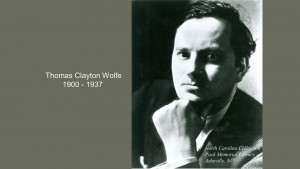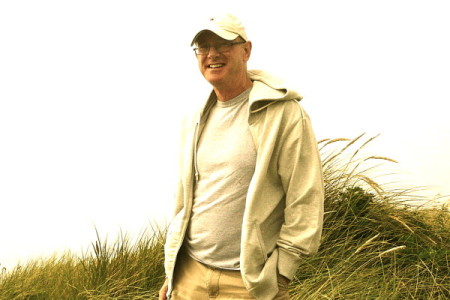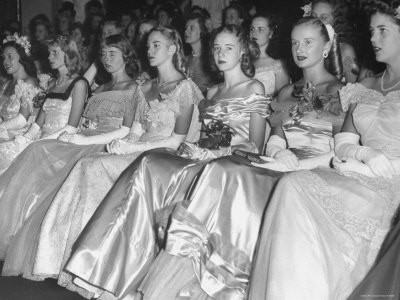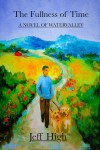Genius
 Next week I will be a guest lecturer to a couple of college literature classes in which my first novel, More Things in Heaven and Earth, is part of the curriculum. Guys like myself, who hail from bushhog-intensive backgrounds, rarely get to have this kind of honor. Each session will last almost an hour and I’m deeply concerned about being able to hold my stomach in for the entire time.
Next week I will be a guest lecturer to a couple of college literature classes in which my first novel, More Things in Heaven and Earth, is part of the curriculum. Guys like myself, who hail from bushhog-intensive backgrounds, rarely get to have this kind of honor. Each session will last almost an hour and I’m deeply concerned about being able to hold my stomach in for the entire time.
Meanwhile, I’ve been preparing a lot of lofty literary comments to make to those eager young minds, all of whom will be staring at their I-Phones…no doubt taking notes on my every word. When I’ve done this before, I’m always asked what writers have influenced me, other than Charles Shulz and Dr. Seuss. And while it is true that I do love a little humor in a story, I am consumed (as much as my editor will allow and without bogging down the story) with the goal of writing beautiful, descriptive prose. That desire was born from reading the works of a single author, Thomas Wolfe.
I was introduced to Wolfe’s writings in college but didn’t fully immerse myself into them until my early thirties. In Wolfe I found an imaginative, rhapsodic, flowing prose whose subject matter was little more than the daily ebbs of provincial life. His descriptions of the ordinary made them extraordinary. But his sentences could be over a hundred words and he had paragraphs that were four pages long. He’s an acquired taste. In truth, his novels were thinly veiled autobiographies and for me, Look Homeward, Angel was his seminal work. It details Wolfe’s early life culminating in the tragic young death of a beloved older brother…an experience that unfortunately, I understand only too well.
Indulge me a literary moment here. The title Look Homeward, Angel is taken from a poem by John Milton called Lycidas regarding the death of his best friend who was lost at sea on a passage between Ireland and Wales. Milton appeals to a figurative statue of St. Michael, (The Patron Saint of Mariners) that is on the coastline and looks out across the ocean, to turn around and “look homeward, angel” and weep for the loss. Milton, in turn, used the character Lycidas from Greek Mythology. He was a shepherd, emblematic of living an idyllic pastoral life…not so unlike the world of Watervalley. For me, there is much about all of this; the book, the poem, and their themes that reverberate with me, my life, and the stories I write.
This is one of the things I love about literature. With good literature, there is depth and history that is layered below the surface. There are thematic consistencies working in the substrata that, at book’s end, resonate with the reader and gives them a sense of fulfillment. More Things is a story about the blessings of rural life. But it is also richly embedded with thematic symbols of order and disorder, light and darkness, good and evil. As example, the description in the Prelude of the drop of water is simply an allegory about the spiritual journey of Luke Bradford. The Prelude asks a simple question: Is life random or is there a larger order that animates the universe?
Now its journey will end for a season, having found the way here through time and space and earth by the chaos of forces that were unforeseen and random.
Or were they?
Couple that with the final page of the Postlude, where Luke is standing with his palm up (the supplicant position) looking up to the heavens and catching a snowflake in his hand.
He stood there marveling at its symmetry and design. It spoke of an order in the universe, of patterns that he had been unable to see before.
Melted by the warmth of his life, the snowflake becomes a drop of water. Knowledge of these are not required for enjoyment of the story and they are there largely because of my desire to infuse the novels with deeper meaning. Perhaps at some point I will write a paper illuminating all of this. Honestly, I’m not sure what percent of my readership wants to know or cares. Meanwhile, I’ll be using those unwitting college students as my test market. I’m pretty sure that all those closed eyes will be due to my inspiring words moving them to prayer. (Probably beseeching the Almighty for me to be quiet.)
Wolfe was a contemporary of F. Scott Fitzgerald and Ernest Hemingway. They shared the same editor, Max Perkins. William Faulkner said Wolfe was the best writer of their generation. And Pat Conroy, (The Great Santini, The Prince of Tides) who I had the pleasure of meeting as a fellow author, was an ardent fan of Wolfe, stating that his writing career began after reading Look Homeward, Angel. Fitzgerald, Hemingway, and Faulkner have endured but unfortunately, Wolfe’s role in the college classroom has diminished…probably because his works are voluminous and slow paced. But the genius of his prose will remain forever.
“Genius,” by the way, is the name of the movie about Wolfe and Max Perkins that was done last year with an absolutely incredible cast of Jude Law, Nicole Kidman, Colin Firth, and Laura Linney. Ironically, tw0 Brits and one Australian playing distinctly American roles. Law did an admirable job as Wolfe…albeit, he is barely six feet and Wolfe was six foot, six. As well, Law struggled with the Southern accent. When a Southerner notices your accent, you’re not doing it right. While not blockbuster material, the movie is highly entertaining. And the quality of the cast lends testimony to the powerful place that Wolfe has in the literary world.
And finally…as a writer, Wolfe was prolific. The original manuscript of Look Homeward, Angel had 60,000 words cut from it. On an average day, he would write 5,000 words. On a good eight-hour day at the keyboard, I will write 1,000 to 1,200 words. Given the average novel length of 100,000 words, well…you get the idea.
So please know that book four is on the way. I am greatly thrilled and encouraged with all the constant requests for its release. Hang tight, I’m typing as fast as I can.
As well, I’ll let you know how it goes with the college lectures and, if there was a lot of beseeching.
Until next time!








